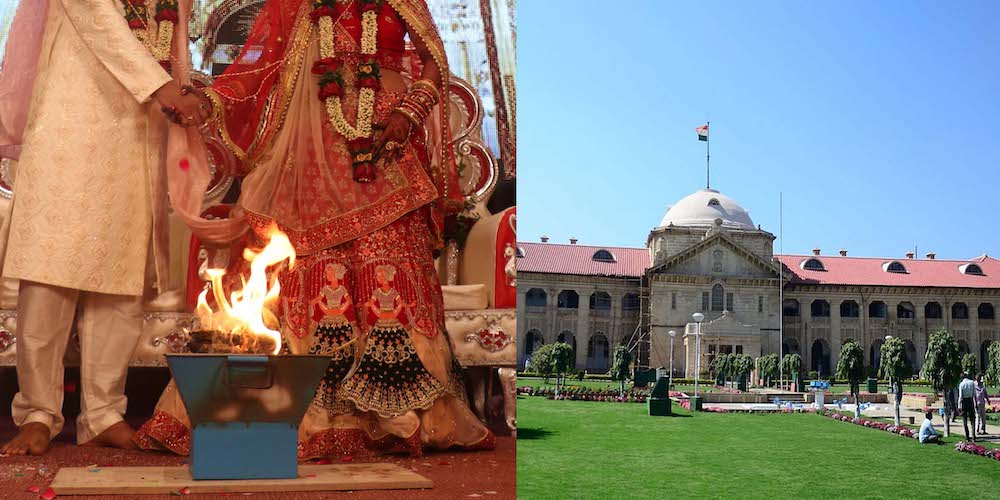Jahanvi Agarwal
On 3rd January 2024, the Supreme Court intervened to halt a Patna High Court decision that had invalidated a marriage, citing the groom’s alleged coercion at gunpoint and the absence of the saptapadi ritual under the Hindu Marriage Act, 1955.
A bench comprising Justice Hima Kohli and Justice Ahsanuddin Amanullah issued a notice in response to a petition challenging the High Court’s ruling, stating, “Issue notice. Till further orders, operation and implementation of the impugned judgment shall remain stayed.”
Last November, the High Court declared that a Hindu marriage lacks completeness unless the bride and groom undertake the saptapadi or saat pheras. The Court reasoned, “From a bare perusal of the aforesaid provision (of the Hindu Marriage Act), it is obvious that when such rites and ceremonies, including Saptapadi, the marriage becomes complete and binding, when the seventh step is taken. Conversely, if ‘saptapadi’ has not been completed, the marriage would not be considered to be complete and binding.”
The High Court also referred to a 2001 Supreme Court judgment emphasizing the indispensability of saptapadi and datta homam (offering of ghee into a sacred fire) for the validity of a traditional Hindu marriage. The case involved an Army signalman who asserted that he was forced into a marriage after his uncle was kidnapped during temple prayers in Bihar’s Lakhisarai on June 30, 2013. On the same day, he claimed to be coerced at gunpoint into applying vermilion (sindoor) on the bride’s forehead without any accompanying rituals.
Despite his uncle’s attempts to file a complaint, the police reportedly failed to address the matter. Consequently, the petitioner pursued legal action by filing a criminal complaint before a Chief Judicial Magistrate’s court.
On November 10, the High Court granted the petitioner’s plea, deeming the marriage ceremony forced. The bride contested, arguing it was an arranged marriage performed normally. However, the Court found the marriage ceremony to be “anything except normal.” Subsequently, the bride appealed to the Supreme Court, securing a stay on the High Court’s order.
Case Name: Bandana Kumari v. Ravi Kant
Diary Number: 28415/2023
Bench: Justice Hima Kohli and Justice Ahsanuddin Amanullah

